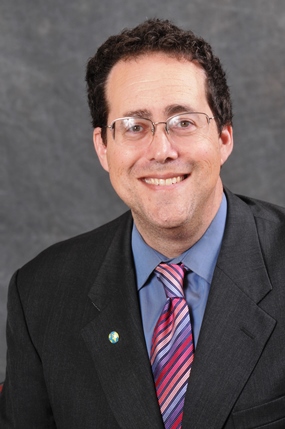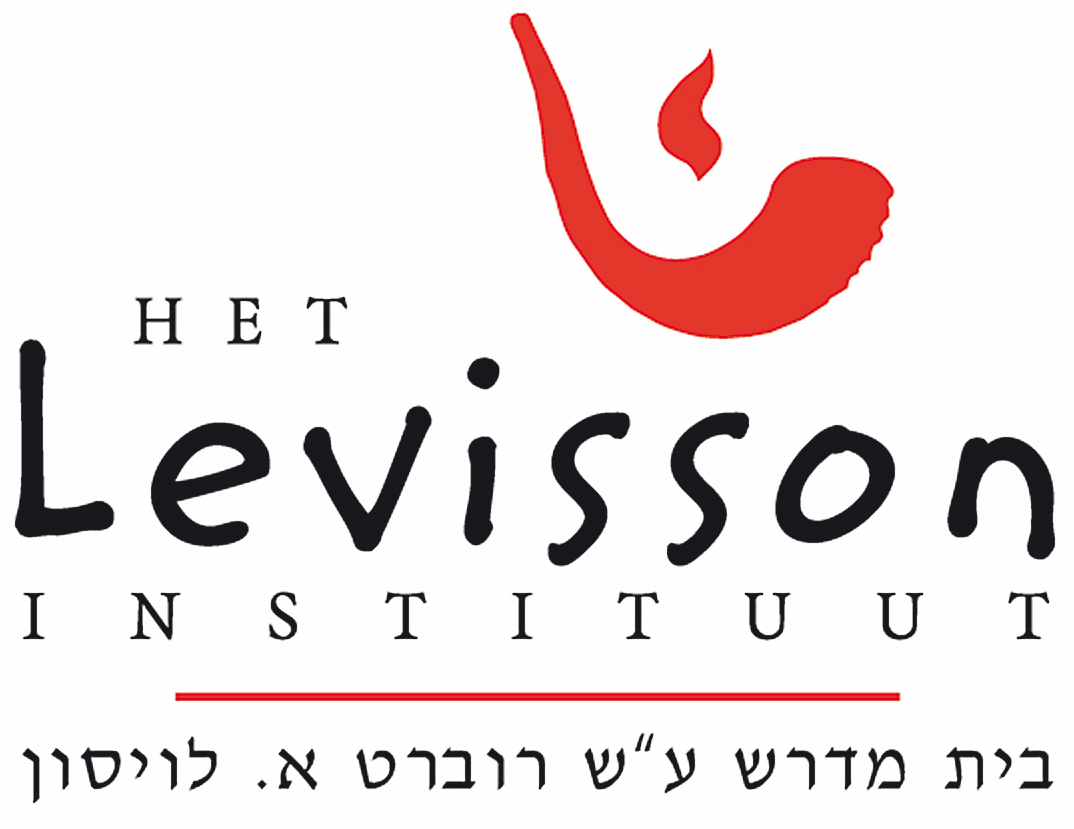Bradley Artson

Rabbi Bradley Shavit Artson holds the Abner and Roslyn Goldstine Dean’s Chair at Ziegler School of Rabbinic Studies, part of the American Jewish University in Los Angeles. He is Vice-President of the University, He is also Dean of the Zacharias Frankel College at the University of Potsdam in Germany, the training for Conservative/Masorti rabbis in Europe.
In 2010 rabbi Artson wrote the article below on the occasion of Shavuot.
This article was original published in ‘Jewish Journal of Greater Los Angeles’, 2010, nr. 511.
Almighty? No Way! Coming to Know the God We Already Love
Sometimes life presents us with challenges so arresting, so shattering that they change everything. This is the tale of a series of such moments, which began with my son’s diagnosis with autism, sending me into a tailspin, and sundering my conventional ideas of God and Torah. This is the tale of my grieving, hopeful journey through libraries of science and philosophy as well as walking the streets of Jerusalem, out of which, I began to articulate what I believe is a revolutionary way of loving God, God’s creation, and God’s Torah. And, in the end, it is a tale of finding these revolutionary, liberating ideas hidden right where I had started – in the Torah, in the Talmud, in the Siddur, in the Kabbalah. I just needed open eyes to see what had been there from the beginning, hidden under the crust of the theology most people think religion is supposed to mean. In this season of Shavuot, I want to share a new way to receive and embrace God and Torah. But it’s also not new at all, because the God I now love is, I believe, the One you love too, and already know.
When my beautiful son, Jacob, was diagnosed with autism as a child, some 14 years ago, at the age of three, I stopped putting on my tallit andtefillin. I had been taught that God was all-powerful, which would mean God could have prevented Jacob’s autism but didn’t. I could not pray to someone who could inflict autism (or choose not to prevent it). I said to God, “It’s better if we don’t talk for awhile. You’re not going to want to hear what I have to say, and I don’t want to talk to you. So I am not going to.” And for a year and a half, God and I just didn’t talk (which is a bit awkward professionally, because I am, after all, a rabbi). I wrestled with tormenting thoughts: “I’m a good person; how could he do this to me? I keep kosher, I don’t mix linen and wool in my clothing, I help people all day long. I am fighting for the survival of the Jewish people. How could God let this happen to my beautiful, innocent son?” Rabbi Harold Kushner, author of the wonderful book, “When Bad Things Happen to Good People,”says that expecting the universe to make exceptions for you because you are a good person is like expecting a bull not to charge because you are a vegetarian!
If God didn’t give Jacob his autism, doesn’t cause suffering and evil, then what is the explanation? In the words of Job: “If not God, then who?”
In order to uncover a deeper answer to this age-old question, we have to revisit the dogma of creation from nothing, a teaching derived from Aristotle and one that makes belief in God’s goodness so difficult for so many. What the Torah actually says is “when God began creating heaven and earth, there was tohu va-vohu (chaos) and the ruach(wind/breath/spirit) of God was vibrating over the face of tehom, the deep, God said, “Let there be light,” and there was light.” According to the Torah, was there tohu va-vohu, chaos, before God started creating? Yes. Unambiguously yes! At the instant God began creating, tohu va-vohu was already existent, and the ruach of God flutters over tehom (that had to be there already for the spirit of God to be able to flutter over it)! The simple meaning of Genesis 1 is that there is pre-existent darkness and chaos. The tehom, the chaos, already exists – bubbly, uncontainable, and undomesticated. God’s creative act is not the special effect of something from nothing, but the steady hesed (loving kindness) of converting chaos into cosmos. Tohu va-vohu and the tehom have always existed, and threaten still. God has always been, and is still, inviting/commanding the chaos into cosmos. We have misunderstood the nature of Divine creativity and power.
We are taught to think about God’s power as coercive, I suspect, because when we think about human strength and force, we think of coercive power – warriors, despots, pharaohs, führers, commissars, and terrorists. But it turns out throughout history that long-term power is not coercive; the most transformative power is persuasive. Pharaoh was brought down – and the persuasive ideals revealed among those ancient Hebrew slaves has been liberating people ever since. In your own life, think about the abiding impact of a really inspiring teacher. Reflect on how you have been transformed by a great mentor, or parent, or lover – people who broadened your vision, encouraged you, and made it possible for you to do something you never thought possible. They did not accomplish this task using mere coercive power; they invited you to be yourself, lured you to exceed your prior limitations, inspired you to live in the light. The Bible is full of examples of God using not coercive, but persuasive power to enlist our participation in creating a worthy, covenanted future.
During my decade of reckoning with God and coming to terms with Jacob’s autism, I began to develop a different relationship with God and a different understanding God’s relationship to our world.
I now advocate what is called Process Thought, which was first articulated by mathematician/philosopher Oliver North Whitehead, enhanced by philosopher Charles Hartshorne, and applied by theologian John Cobb, among a growing circle of thinkers. According to Process Thought, everything is in the process of becoming, and every process – you, me, the world, the cosmos, God – is not a substance, a thing, but rather a distinctive pattern of energy that retains some measure of constancy in the midst of change and growth. It is God who provides the grounds for our creativity, our becoming more connected, more just, more compassionate. It is God, working through Jacob, who allows Jacob to triumph over his autism day by day.
I stumbled upon Process Thought almost by accident, researching new approaches to integrating science and religion, and to how God relates to the world. About four years ago, I found an anthology, Philosophers Speak of God, edited by Charles Hartshorne, which offered a range of philosophical understandings of God – Jewish, Christian, Muslim, Hindu, Buddhist and philosophical. I was drawn to these brave process thinkers, which led me to the contemporary writings of John Cobb and Katherine Keller, and the scientific reflections of John Polkinghorne, Arthur Peacocke, and Philip Clayton. Through them I returned to the writings of Milton Steinberg, Max Kadushin, Martin Buber, and others. Reading them was like slipping into a soothing bath, a healing mikveh. The external, bullying, punishing ideas of God melted in the mist, leaving the transformative, healing balm of relationship, novelty, and persuasion. I fell in love again – with God as understood through Process, and with God’s creation as a continuing expression of loving, relating, and of novelty.
The insights of Process Thought saved my love of God, because instead of looking to God to be the all powerful exception to the rules (the up there/out there Bully in the sky), I started looking to God as the very exemplar of the rules – the One who makes it possible for us to surpass ourselves, the One who inspires us to ever new levels of love and creativity. Instead of looking for God in magic, I look for God in Jacob’s refusal to let himself be defined or limited by his autism. I see God in Elana, my resilient and courageous wife’s refusal to abandon our son to a marginal existence. I see God’s persistent lure in people in the community who look past the autistic label and embrace Jacob – a young man of hope, strength, joy and astonishing wisdom. Working with, in, and through creation is the arena for God’s unique amazing persuasive power. Tanks can knock walls down, but there isn’t an army in the world that can give Jacob the capacity to sit through a class for an hour and a half. That transformation requires the resilient, determined, persuasive love of God, manifest not as the exception to the rules of physics and biology, not in the suspension of Jacob’s autism, but as the way the very universe is tilted towards interrelationship, complexity, and creativity. God doesn’t work from outside creation – intervening from afar. God bubbles up from within, working in us, through us, and with us.
Reflect for a moment: the universe operates according to unchanging physical laws. If you were to do the same thing over and over and over again without change, wouldn’t the result be the same each time? Yet the universe has instantiated the same unchanging laws for 14 billion years, and new and increasingly complex events continue to emerge. You have got to ask yourself – why? I see God in that emerging novelty and increasing complexity. God is the One who makes relationship possible; the force that makes for greater complexity and deepening experience. God makes possible our ability to love, reach, and help each other.
I don’t think that God gave my son autism, or could have stopped it. Tohu va-vohu is always present. I don’t believe that God caused the Holocaust or could have prevented it. Creation is about containing the chaos, inviting order where there was none. The tehom is always bubbling chaos, and God is steadily extending cosmos. But the tohu va-vohu remains real, innovative, and dangerous. The tehom continues to threaten and to beckon, bubbling over in crisis, tragedy, and novelty alike.
God is the resilient force luring us/commanding us to rise to the best choices, celebrating our creation into freedom and asking us to covenant as partners (the rabbinic term is shutafim) in the continuing creation of the world. That we are given the Godlike ability to create, to innovate, to perform deeds of loving kindness and acts of justice is what it means to embody tzelem Elohim, God’s image, in the world. And God’s persuasive love is sufficiently resilient, sufficiently determined, to see us through in love.
In that sense, God is like the GPS system in my wife’s car. Because of its elevated accent, I call the voice “Glynnis.” When we drive, Glynnis routinely shows that it understands God better than I do. Glynnis and I will both say to my wife (the driver), “When you get to the stop sign, take a left.” And then, Elana, for reasons neither Glynnis nor I comprehend, will drive to the stop sign and keep going straight. This is where Glynnis and I part ways. Because I want to blurt out, “What are you doing? I told you you were supposed to…! You’re going to miss the exit!!” But Glynnis simply says, “Recalibrating.” Then it offers a corrective next choice: “At the next corner, take a right, then a right, then a right.” Glynnis remains calm, unruffled, and will recalibrate however often a driver makes a wrong choice.
I now know that God is like the GPS in that way. God doesn’t judge or condemn us; God doesn’t coerce us. God offers us the best possible choice (mitzvah) at this (and every) moment. If we rise to God’s lure, then God says, “Good – Now here’s the subsequent best choice (the next mitzvah).” If we don’t accept the lure, God says, “Recalibrating. OK, given your last choice, here’s the best possible choice you can now make.” Like Glynnis, God persistently invites us, lures us, commands us to make the best choice. That model of God invites us onto a path of compassion, justice, and resilient strength that the Bully in the Sky never could.
There is an old rabbinic tale about the wind and the sun arguing about who is stronger. Turns out it is a Process story: The wind says, “I’ll show you that I’m stronger. I’m going to get those people to remove their jackets.” But the more the wind blew to force their jackets off, the more the people clutched their jackets tight. The Sun said, “You’re trying the wrong kind of strength. Watch.” And the sun simply radiated light. And as the sun’s beams beckoned, the people loosened up their jackets. Eventually the sun’s light was so beautiful and so intoxicating that they chose to take their jackets off, because they wanted to. A God of invitational power is actually the God we believe in; and one that Process Thought allows us to see in the unvarnished beauty of Torah and masorah. We now have the science and the philosophy to be able to embrace what we know, and to live what we love.
I do not believe in the up there/out there bully in the sky. I would much rather celebrate the Cosmic Companion who is creating a universe in which I, and the rest of creation, are invited towards cosmos, connection, justice and love. You already know in your heart what your best choice is at this moment. Yet, even now, you remain free to demur, free to indulge your anger, your pettiness, your horniness, your hunger, your exhaustion – whatever it is that makes you deviate from the mitzvah that awaits, and your truest, best self, the tzelem Elohim within. But God loves you with anahavat olam, an abiding love. God bids you to make the best choice and gives you the capacity to make it. “See,” says God, “I have set before you life and death, blessing and curse; therefore choose life, that you and your children may live.”

